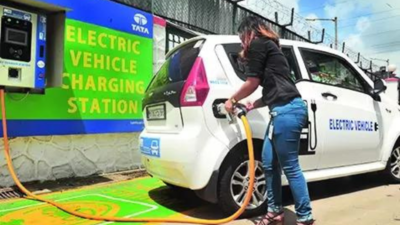The push for
lithium-ion batteries
could make electric vehicles more affordable and drive manufacturing and sales of EVs.
EV and battery manufacturers said the exemption of lithium-ion batteries, motors, controllers, and essential materials such as cobalt powder and zinc from the capital goods list will accelerate deeper backward integration by TN’s EV cos and encourage more sales of EVs as they get cheaper.
“With Hosur, Ranipet, and Chennai established as key
EV manufacturing
hubs, this will boost the supply chain, enhance local value addition, and reduce import dependence,” said Vinnie Mehta, director general of the Automotive Component Manufacturers Association of India.
EV makers see a more efficient and competitive local value chain ahead. Mahesh Babu, CEO of Switch Mobility (the electric arm of Ashok Leyland), said the exemption of EV components from the capital goods list will make the EV industry competitive. “The announcement of the National Manufacturing Mission, with its dedicated focus on clean tech manufacturing and EV components, will further strengthen the local value chain and lead to more backward integration, especially batteries,” he said.
This means cheaper EVs for customers to drive home. Take Raptee, a TN-based EV company that manufactures batteries for its own vehicles. Dinesh Arjun, co-founder and CEO of Raptee, said the move will reduce battery costs, which make up 30% to 40% of the price of an electric vehicle.


